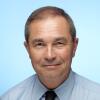Medical nomads change lives
When Dr. Bruce Ascough pulls up to a Red Cross hospital in Mexico, there usually are dozens of people with deformities and other ailments lined up to see him and other doctors, hoping they can change their lives for the better and emerge from a life of being treated like outcasts.
Ascough, a plastic surgeon at Verdugo Hills Hospital, has been going to Mexico for nearly 30 years, three times a year, volunteering to help repair cleft palates, cleft lips and other deformities in children and adults.
Working through Interface, a large medical volunteer team, Ascough and other doctors perform 60 to 80 surgeries over two days.
And his work truly changes lives.
He recalled one heart-warming moment following a surgery on a woman in her early 20s who had a cleft lip.
“The nurses gave her her first tube of lipstick in the recovery room,” he said.
While almost all parents of children born with deformities in Mexico stand by them unwaveringly, Ascough did treat a young boy whose mother abandoned him when she saw his cleft palate.
His father, a field worker, would carry his infant son in a papoose across his chest while he worked, and fed him with an eyedropper.
When the boy was about 4 years old, he and his father traveled about 10 hours by bus to see Ascough and his team for a surgery that would allow the boy to speak properly and smile with confidence.
Children with cleft palates cannot pronounce “K” or some “G” sounds because the roof of their mouth never closed while developing inside their mother’s womb, so it opens up into the nasal cavity, Ascough said. People with cleft lips cannot make “B” or “P” sounds, he added.
Ascough also helps children with other deformities, such as a 5-year-old girl whose left hand was about a third the size of her right one, its fingers webbed together.
“We went ahead and separated her fingers,” Ascough said. “We thought she’d like to wear a ring some day.”
The team of doctors, nurses and anesthesiologists are somewhat like nomads in that as they travel back and forth to Red Cross hospitals, they must bring everything with them — from gloves to surgical equipment. Dentists, speech pathologists and a psychologist also join the group.
Ascough recalled when he first joined the group in the mid-1980s, the Red Cross hospital where he worked had no air conditioning, just fans by open windows.
“The bugs could fly in and buzz around while we operated,” he recalled.
Ascough said it’s rewarding to help those in need and he likes using skills he learned many years ago.
During his medical training, Ascough learned how to operate on cleft palates and lips. However, doctors rarely see those medical conditions at regular hospitals because most kids are taken to children’s hospitals for cleft palate and lip operations.
“It gives me a chance to use what I’ve been trained to do,” he said.
Even adults have benefited from Ascough’s work. He once repaired a cleft lip on a man who was about 50 years old.
“When we returned, he’d gotten married,” Ascough said.
---
Follow Mark Kellam on Twitter
